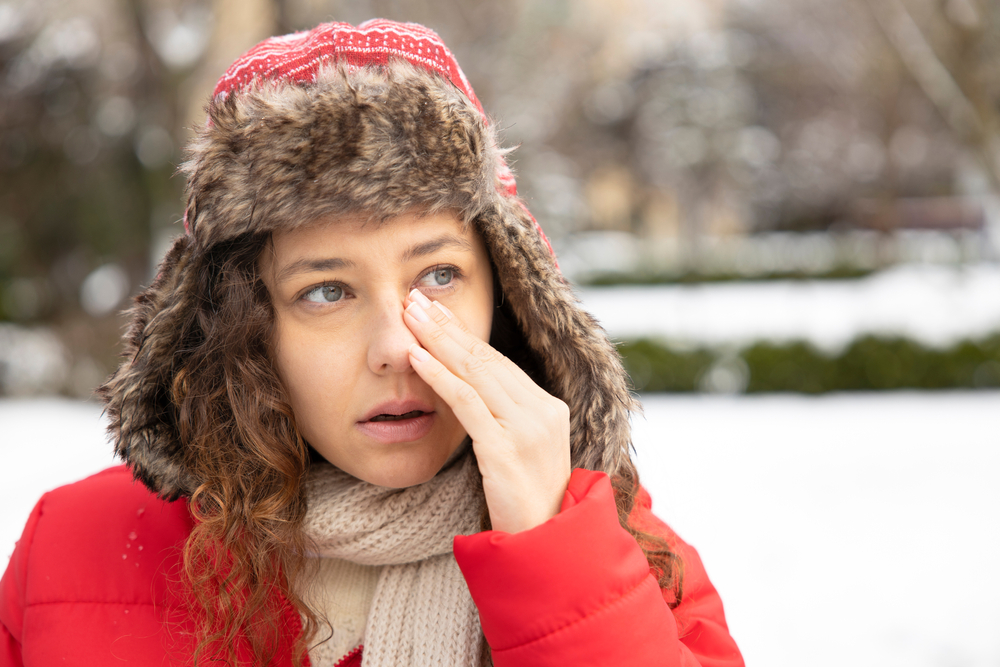
Winter has arrived, announcing its presence with a crisp chill in the air and gentle embrace of frost-kissed landscapes. But along with the picturesque snowfall and cozy evenings by the fireplace, winter weather ushers in a challenging period for those who suffer from allergies and dry eye. Millions across the world face struggles during the winter months, but the good news is that there are ways to manage and even alleviate these symptoms.
The Connection Between Winter Weather and Eye Problems
Winter brings about a drop in temperatures and a decrease in humidity, both of which can exacerbate dry eye symptoms. The dry, cold air can cause the tears that coat the surface of our eyes to evaporate more quickly, leading to dryness, irritation, and discomfort.
Apart from the external weather conditions, the indoor environment during winter also contributes to allergies and dry eye. As we crank up the heating systems to keep ourselves warm, the air inside our homes gets dry. This lack of moisture in the air can cause our eyes to become dry and itchy. Additionally, as we spend more time indoors, we're exposed to more indoor allergens like dust mites and pet dander, resulting in winter allergies.
Another factor that contributes to winter eye problems is the reduced blink rate when we engage in activities like reading or using digital devices. This is especially true in winter when we're likely to spend more time indoors on these activities, leading to further dryness and aggravating our eye symptoms.
Common Symptoms of Allergies and Dry Eye in Winter
The symptoms of winter allergies and dry eye can range from mild to severe, often overlapping and causing discomfort. If you're suffering from dry eye, you may experience a stinging or burning sensation in your eyes. You might also feel like there is something in your eyes, causing persistent discomfort. Other symptoms include redness, sensitivity to light, blurred vision, and even watery eyes, which is the body's response to the dryness.
Winter allergies can cause similar symptoms, including red, itchy, and watery eyes. However, they can also lead to sneezing, runny or stuffy nose, and itchy skin. The overlap of symptoms between allergies and dry eye can make it difficult to distinguish between the two, often leading to misdiagnosis and ineffective treatment.
Coping Strategies
There are several coping strategies that can help manage the symptoms of winter allergies and dry eye. For starters, keeping your surroundings clean can reduce exposure to indoor allergens. Regular vacuuming, reducing clutter, and washing bedding in hot water can help keep allergens at bay. For pet owners, keeping pets out of the bedroom and off furniture can also help.
To combat dry eyes, try to blink often, especially when reading or using digital devices. Use a humidifier to add moisture to the indoor air. Over-the-counter artificial tears can also provide temporary relief. Additionally, staying hydrated and including foods rich in omega-3 fatty acids in your diet can help improve tear quality.
Regular eye exams play a critical role in managing winter allergies and dry eye. An optometrist can conduct a comprehensive eye exam to diagnose these conditions accurately, something that's often difficult to do based on symptoms alone due to their overlap. Regular eye exams can also help detect these conditions early, allowing for timely intervention.
Additionally, an optometrist can recommend personalized treatment plans based on the severity of your symptoms and your lifestyle needs. They can also provide advice on managing symptoms at home and guide you on when to seek further medical help.
Enjoy Winter with Comfortable Eyes
Winter should be a time of joy and festivities, not discomfort and distress. With the right knowledge and strategies, it's possible to manage the symptoms of allergies and dry eye effectively. Stay vigilant about changes in your eye health, maintain a clean environment to keep allergens at bay, and don't hesitate to seek professional help when needed.
To learn more coping strategies for winter allergies and dry eye, consult with Dr. Wong & Associates at our office in Danbury, Connecticut. Please call or text (203) 748-3937 to schedule an appointment today.










